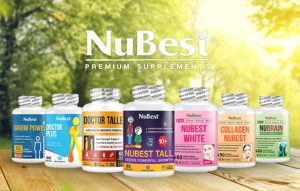Table of Contents
ToggleSupplements have become an essential part of modern lifestyles, especially for individuals who struggle to maintain a balanced diet or have certain nutritional deficiencies. They offer a convenient way to fill in the nutritional gaps in our daily diet, ensuring that our bodies receive the necessary nutrients to function optimally. However, with the market flooded with countless supplement options, the ongoing debate between organic and synthetic supplements has gained traction. Natural sources provide organic supplements, while laboratory settings create synthetic supplements.
Organic supplement supporters claim natural forms are more bioavailable. Synthetic supplement advocates argue for precise dosage and affordability. One cannot overemphasize the importance of supplements in maintaining a healthy lifestyle, regardless of the debate. Supplements can help address nutritional deficiencies, support the immune system, promote healthy aging, and aid in recovery from illnesses.

Organic Supplements: Definition and Explanation
Producers make organic supplements by growing and processing organic ingredients without the use of synthetic fertilizers, pesticides, or other chemicals. They are becoming increasingly popular due to their natural and sustainable properties.
Benefits of Organic Supplements
Higher Nutrient Density: Organic supplements are often richer in vitamins, minerals, and other essential nutrients compared to non-organic supplements. This is because organic foods are grown in soil that is rich in nutrients.
Fewer Additives and Chemicals: Organic supplements are made from pure, natural ingredients and do not contain artificial colors, flavors, or preservatives. This makes them a safer and healthier choice for people who are sensitive to chemicals or have allergies.
Environmental Benefits: Organic farming practices prioritize sustainability and biodiversity, which means that organic supplements support sustainable farming practices and help reduce the carbon footprint.
Drawbacks of Organic Supplements
Limited Availability: Organic supplements are not as widely available as non-organic supplements, which can make it difficult for some people to find them.
Higher Cost: The higher cost of producing organic ingredients, as well as the cost of certification and compliance with organic regulations, means that organic supplements can be more expensive than non-organic supplements.
What Are Synthetic Supplements?

It is important to note that synthetic supplements should not be used as a replacement for a healthy, balanced diet. It is best to get your nutrients from a variety of whole foods whenever possible, as they contain other important nutrients that may not be found in synthetic supplements.
Definition of Synthetic Supplements
Synthetic supplements are man-made dietary supplements that are designed to mimic the natural vitamins and minerals found in food. These supplements are created in a laboratory and can be taken in the form of pills, capsules, or powders. People often use them as a supplement to their diet when they are not getting enough of a particular nutrient from their food intake.
Examples of Synthetic Supplements
Examples of synthetic supplements include Vitamin C, Vitamin E, and folic acid. Synthetic chemicals mimic natural vitamins and minerals in food to create these supplements. While these supplements can be effective in boosting nutrient levels in the body, they can also have potential risks and side effects if taken in excess.
Benefits of Synthetic Supplements
The benefits of synthetic supplements include helping to prevent nutrient deficiencies, improving overall health and wellness, and supporting specific health conditions. For example, synthetic Vitamin D supplements can help to prevent rickets and osteoporosis, while synthetic iron supplements can help to prevent anemia. Synthetic supplements can also be beneficial for individuals who follow a vegan or vegetarian diet, as they may not be getting enough of certain nutrients from their plant-based diet alone.
Differences between Organic and Synthetic Supplements

When it comes to choosing supplements, organic supplements are generally considered a safer, healthier, and more nutrient-dense option compared to synthetic supplements. By providing the body with naturally occurring nutrients, organic supplements may help support overall health and well-being, while minimizing the risks of adverse effects associated with synthetic supplements.
Organic vs Synthetic Supplements: Health Benefits
Organic supplements are known to offer better health benefits than synthetic supplements. Whole foods contain naturally occurring nutrients, which the body can easily absorb and utilize. Organic supplements also tend to be more nutrient-dense, meaning they provide a wide range of essential nutrients that work together to support overall health.
Synthetic supplements, often isolated nutrients or compounds, may not be readily absorbed by the body. They may also contain fillers, preservatives, and other chemicals that can be harmful to health.
Organic vs Synthetic Supplements: Health Risks
Generally, people consider organic supplements safe and beneficial, but synthetic supplements may harm health. This is because they often contain additives such as fillers, preservatives, and other chemicals that can cause allergic reactions, digestive problems, and other adverse effects.
Furthermore, synthetic supplements may not provide the same level of nutritional benefits as organic supplements. This is because they may only contain isolated nutrients or compounds, which may not work as effectively in the body as those found in whole foods.
Organic vs Synthetic Supplements: Nutrient Quality
Organic supplements usually have higher nutrient density than synthetic supplements. Whole foods contain a range of essential nutrients that work synergistically to support overall health. This is why they are beneficial.
How to Choose Between Organic and Synthetic Supplements
The choice between organic and synthetic supplements will depend on a variety of factors, including safety, efficacy, and individual needs. It’s important to do your research, consult with a healthcare professional if necessary, and carefully evaluate all of your options before making a decision.
Considerations when choosing supplements
When choosing between organic and synthetic supplements, there are several important considerations to keep in mind. First, evaluate the safety of any supplement you are considering, regardless of whether it is organic or synthetic. Look for supplements that have been thoroughly tested and certified by a reputable regulatory agency. Read the ingredient list and any warnings particularly if you have any existing health conditions or are taking prescription medications.
Safety concerns when choosing supplements
It’s essential to carefully evaluate the safety of any supplement you are considering. Look for supplements that have been thoroughly tested and certified by a reputable regulatory agency. Read the ingredient list and any warnings. Particularly if you have any existing health conditions or are taking prescription medications.










